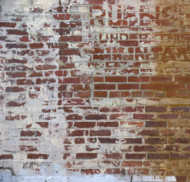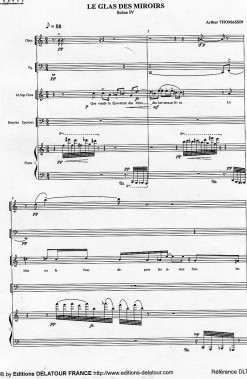Arthur Thomassin
Composer
Professor. CNR de Versailles
Doct. E.H.E.S.S.
Head of the Musical Writing
Sound and Audiovisual Analysis sub-section
Partner C.E.E.I. – CNRS, Paris VII
Program head
L’Europe de l’Ecriture (Fr.)
L’Europe de l’Ecriture
Expression and communication in Multicultural
Europe
International multidisciplinary doctorate research program
First part of the project
Research program : 2003 – 2007 (2 years + 2 years)
Second part of the project
Doctorate program : 3 year cycle, 2003 - 2006
Europe de l’Ecriture
First part of the project
I – Research program : 1998 – 2003
L’Europe de l’Ecriture
is a multidisciplinary research program proposed since 2001 at several European universities since, by Arthur Thomassin, associate member of the Centre d’Etude de l’Ecriture et de l’Image - CNRS-ParisVII, director : Mme. Anne-Marie Christin.
The program originally proposed in Image and musical sound creation (1999-2001), is given in a laboratory of about 80 researchers specialized in most fields of Writing, Image, medium, writing materiality and social representation.
I –
Research orientations
The field of Writing is constituted of numerous forms including the expression and communication of History in "altered" time and of practices and behaviour which every day associate new forms of knowledge with traditional cultures in real time.
The concentration in Europe of several, often ancestral, cultures, increasingly reveals different phenomena such as exchanges in the way in which writing is experienced and understood, borrowings or mutations through borrowings, "mixing", etc …
These mutations moreover give rise to two-way analysis, often between cultures and perceptions (sensory) with very different horizons, historic and social advances corresponding to different periods of the Western writing experience as both an expression of identity and a mode of communication (the generalization of exchange).
The observation of this rapid evolution between the twentieth and twenty first centuries, produces a sensation of the " globalizing " of knowledge conveyed by images associated with other types of language, for instance creative or informative.
In the two fields concerned by the proposed research, sensory expression (artistic and craft, and including the creation of contemporary music) and communication (the understanding of meaning and cultural signs as part of the social application of Writing), European multiculturalism reveals contradictory phenomena, often expressing reservations, or "resistance", or even a return to regionalism or tensions which are based on the interpreting of specific historic values connected to understanding the notion of culture, its classifications and specific notations.
Art therefore appears as a unifying factor replacing the notion of value by that of the quality of existence, the common core of subjective and collective expression which enables communication to wear humanist clothes in a multicultural society. An important question in the future will be the role and practice of technology in the field of expression linked to the assertion of identity.
As a result, our research must be cognitive and multidisciplinary – in the field of the expression of the communicating "Creative Man" or "Imitative Man" – proposing an analysis of the "renaissance" of a new aesthetic in an expanded Europe where social revision is a factor for progress.
For this reason, the program proposes to bring together specialists from the following fields :
The temporal dimension of Writing, Philosophy, Sociology, Anthropology, Semiological-Linguistics, neuro-perception sciences.
II –
The main thrusts of the program [see Second Part of the project] planned for 2003-2007 are :
- The cultural aspects and application base of sensory expression in different forms of Western writing. Comparison and cross referencing with other cultures through applying notations and classifications, notably in art and particularly where sound or music reveal "global" artistic thought.
- The question of cultural identity and " inheritance " in the process of expression via sound and poetry – Concepts, forms and structures.
- Technology and forms of expression. Mutlicultural sociological-musicology.
- The cognitive analysis of creative language and behaviour in musical, visual and sound fields, associating biological and mnemonic aspects of perception.
- Writing as a temporal medium : gesture, music, the animated image. Writing and the imagination.
The research conducted under the program will be employed to produce answers from specialists in different scientific fields, to questions concerning the orientation of current artistic behaviour in relation to the broadening of the sensory in links between what is perceived, inferred or integrated in expressive or communicative language; all sociocultural, multicultural and art economy aspects are explored, notably for media and the management of technological aesthetics, using fundamental scientific data.
In this respect, the research implies an examination not only of notations including Writing, but also the understanding and practice of reading and performance including sensory and mnemonic data.
Consequently, the research teams of each laboratory or university, are constituted of small specialist groups and in their work call on other fields complementary to their research.
The program’s objective is as follows :
- Establishment of a European curriculum, based on student exchanges and rewarded by an International Graduate Degree delivered by a European commission of all the participating universities. The curriculum will be offered on an alternating basis in different countries. Students will attend lessons in at last three universities of the L’Europe de l’Ecriture network.
- The production of annual Seminars to be held alternately in each participating country. (the proceedings will be translated in all the languages of the countries to which the program’s universities belong).
- The realization of documentary media (computer, etc.) concerning the history of the evolution of expression, communication, artistic creation, cultural identity, social and historic membership of ideas and concepts. Cross-referencing Art-Sciences (social and fundamental sciences).
Realizations:
- 2003
- – Participation in doctoral curriculum in Madrid.
Meeting of representatives of all foreign university departments and seminar to be planned at the CEEI in Paris end 2003.
- 2002
- – Seminar Speech or Image ? Paradox of Writing in sound, Madrid – bilingual publication (French – Spanish) planned for October 2002.
- 2001
- – Seminar Text and Score (Textuel n°41 July 02) CEEI, Paris VII
- 2000
- – Meeting and presentation of groups in Madrid (Philosophy Faculty)
Organization chart of research groups
Paris : mainly writing, image and musical creation.
General coordination of the L’Europe de l’Ecriture program.
Mr Arthur Thomassin
– Professor CNR Versailles, M.C. EHESS Paris– theory of sound production, the understanding of the sensory – creation and craft work in the multicultural society.
Prof. Jean-Marc Chouvel
– Delegate Professor CNRS – theory of musical writing, of composition, technology, the aesthetics of the work, additional classes.
Teaching-research group
Curriculum head :
Prof. Ivanka Stoïanova –
Université Paris VIII - history, musicology, analysis, opera, 20th century musical theatre
M.C. Costin Cazaban –
Université Lyon II – musical notation, technology, aesthetics.
Béatrice Fraenkel –
Director of Studies at E.H.E.S.S. – linguistics in writing, semiotics.
Madrid (Spain):
mainly philosophy, aesthetics – Writing and Image
Head of l’Europe de l’Ecriture :
Prof. catedra Ana-Maria Leyra Soriano
Prof. of aesthetics and philosophy.
Facultad de Filosofia Complutense.
Teaching – research group :
Prof. Julian Santos Guerrero : philosophy, aesthetics of the work.
Decano de la Facultad, Prof. Eugenio Fernandez : philosophy – body and sign – culture and representation.
Prof. Luis Montiel : Medical Faculty Madrid – additional curriculum
Prof. José Luis Pardo : philosophy litterature
Prof. Francisco Garcia Jurado : Faculté de Filologie (associated with the program)
Turin (Italy) –
mainly Philosophy, Aesthetics, Writing and Image, textual analysis.
Head of l’Europe de l’Ecriture : Prof. Roberto Salizzoni – aesthetics at the University of Literature and Philosophy
Prof. Federico Luisetti – philosophy of law
Prof. Jean-Claude Léveque – philosophy, aesthetics.
Prof. Héritier : philosophy,
Prof. Gaetano Chiurazzi
The final operating protocol – which will be signed by the representatives of each department after and according to the reply of the European Commission – will give each department responsibility for obtaining its local operating budget.
The European funding will be spread between training, seminars, publishing and translation and all necessary logistics.
The general coordination of the program will be conducted by the French department after consultation with the other heads of university departments on the themes and content of the doctoral training and the research methods to be employed.



